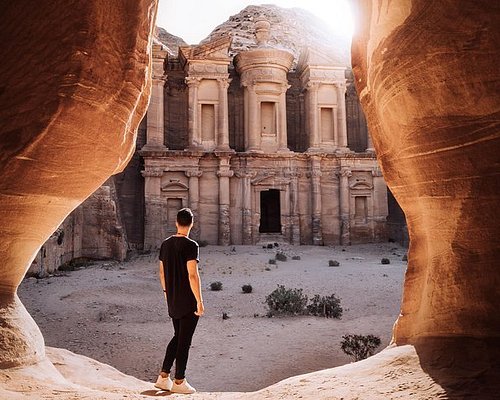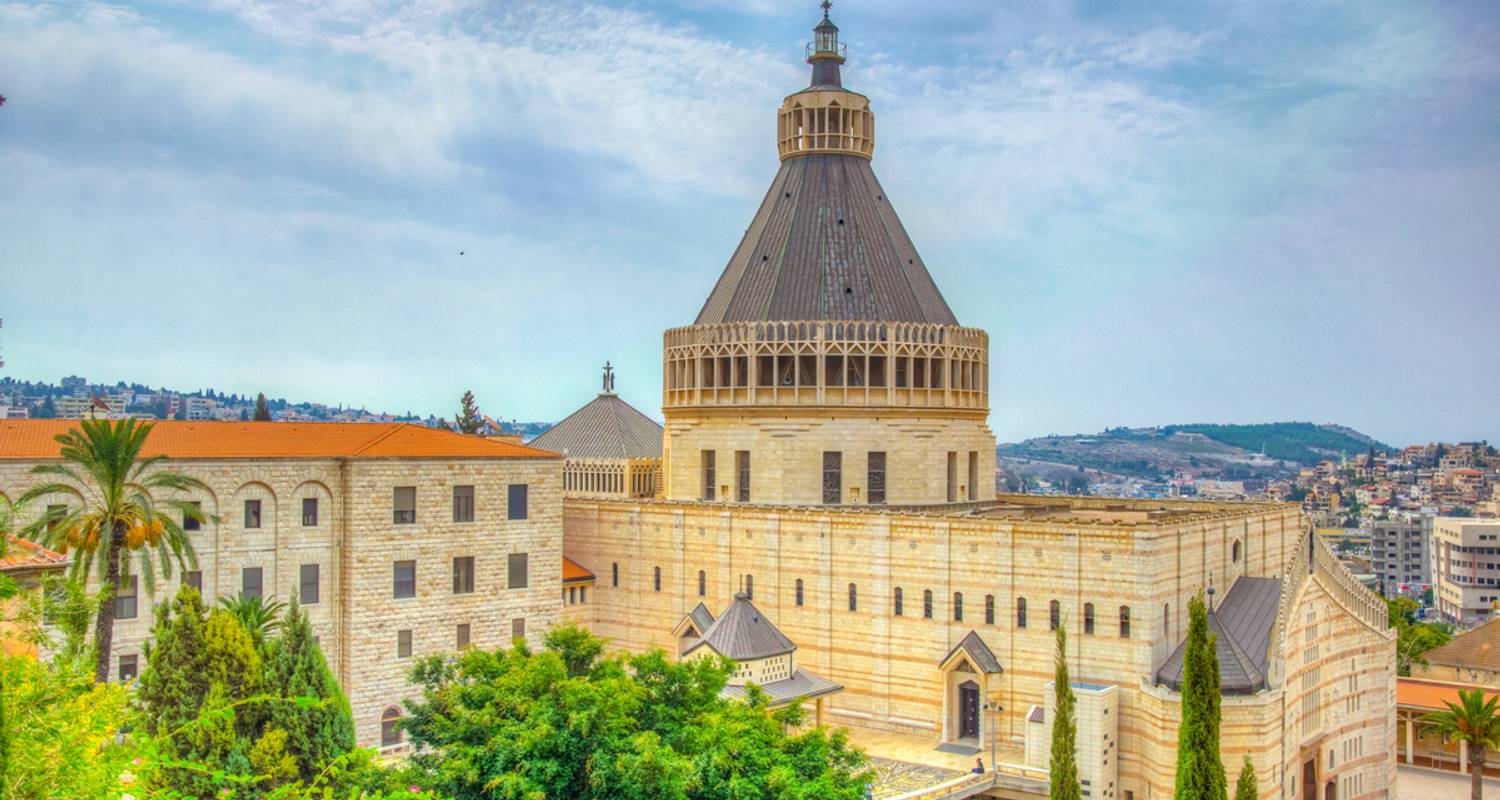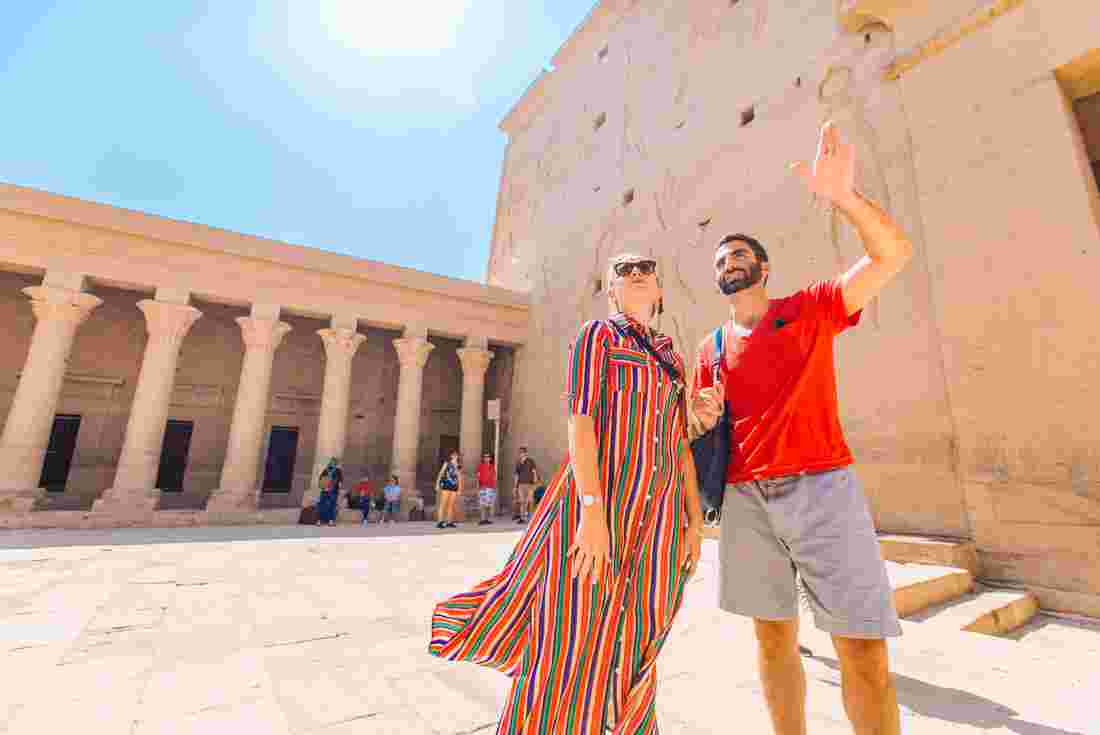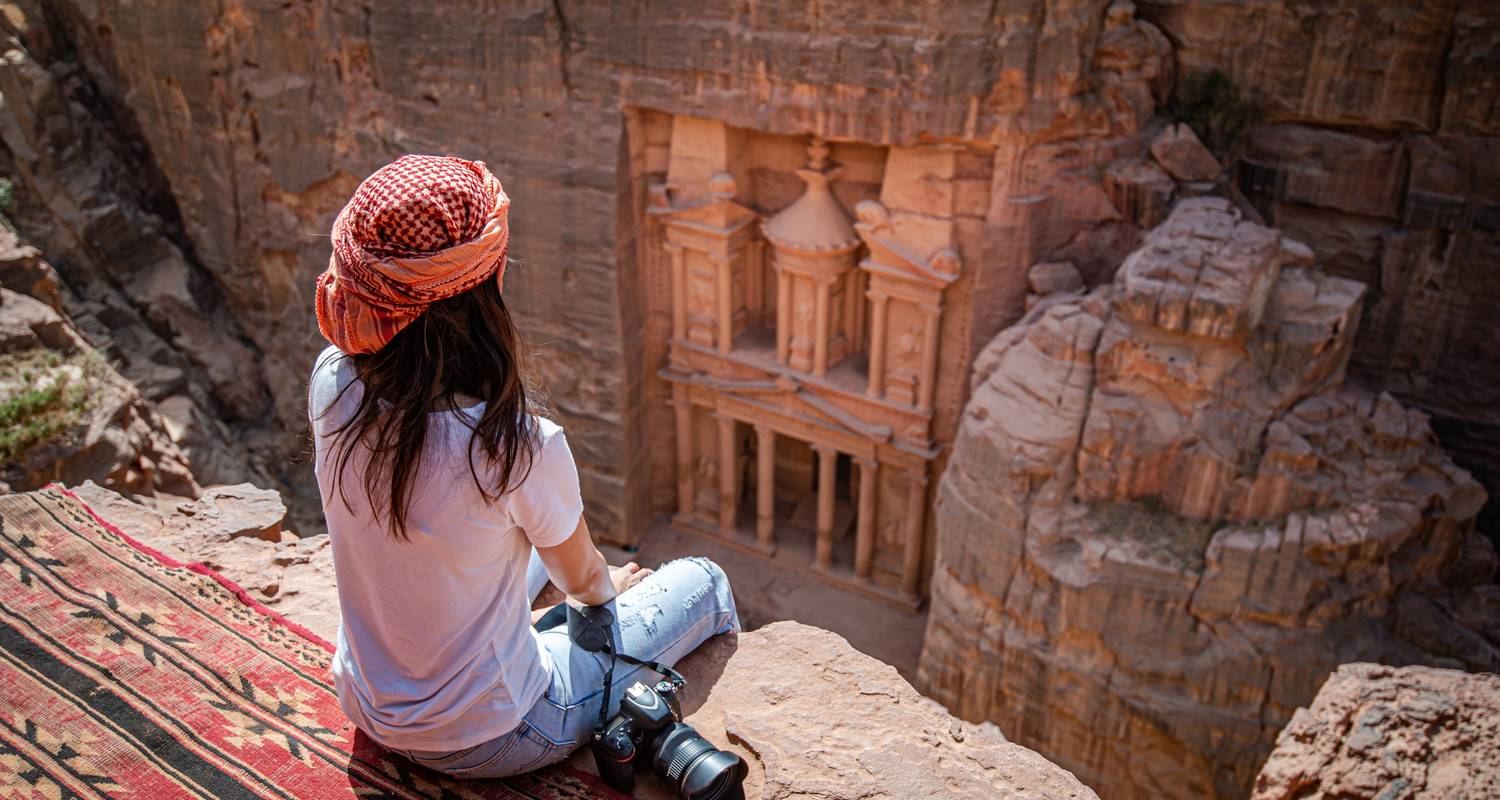08 Days Amman-Petra -Dead sea
08 Days Amman-Petra -Dead seaDescription
08 Days Amman-Petra -Dead sea
Guaranteed departure dates every Saturday:
- 18 February 2023
- 18 March 2023
- 01 April 2023
- 15 April 2023
- 29 April 2023
- 13 May 2023
- 09 September 2023
- 7 October 2023
- 28 October 2023
- 18 November 2023
- 30 December 2023
Tours Cancellation Policy
Applicable for part and whole of a booking:
- 30-21 days prior to arrival, 10% of package rate as handling fees.
- 20-15 days prior to arrival, 25% of package rate.
- 14-8 days prior to arrival, 50% of package rate.
- 7-2 days prior to arrival, 75% of package rate.
- 1 day prior to arrival and no-show, 90% of package rate.
Inclusion
- Meet and assist upon arrival and departure
- Free Jordan entry visa, full passport details required in advance
- Accommodation in the above mentioned hotels or same category including breakfast daily
- Excursions in modern deluxe A/C tourist bus as per itinerary (except arrival and departure day)
- Entrance fees as per itinerary
- Access to a 4 stars hotel and resort beach at the Dead Sea including changing rooms, showers and towels
- Qualified German speaking guide on touring days
- Dinner in a local restaurant in Amman on day 7
- VAT tax and service charges in the hotels

Exclusion
- Arrival and departure transfers, please see supplement
- Extra meals and beverages
- Any personal expenses
- Jeep and camels in Wadi Rum
- Tips and portages of all kinds

Itinerary Visit Guide
Upon arrival at Queen Alia Airport in Amman, meet our representative who will assist you through customs and immigration.
Overnight in Amman
Depart from the hotel
Amman is the capital of the Hashemite Kingdom of Jordan; it is also known as the ancient city of
Philadelphia. A city that has an interesting mix of ancient and modern ... Ammonites, Greeks, Romans, Byzantines and Moslems left their footprints layer upon layer in and around the city. From the top of the citadel, one of the highest hills in Amman, you have a splendid view of the old city "Al Balad". We visit the oldest section in of the city. It is believed to have first been inhabited during the Neolithic period. A walk through the oldest markets will take us back in time.
Overnight in Amman
Depart from the hotel
Jerash lies on a plain surrounded by hilly wooded areas and fertile basins. Conquered by General Pompey in 63 BC, it came under Roman rule and was one of the ten great Roman cities of the Decapolis League.
The city's golden age came under Roman rule, during which time it was known as Gerasa, and the site is now generally acknowledged to be one of the best-preserved Roman provincial towns in the world. Hidden for centuries in sand before being excavated and restored over the past 70 years, Jerash reveals a fine example of the grand, formal provincial Roman urbanism that is found throughout the Middle East, comprising paved and colonnaded streets, soaring hilltop temples, handsome theatres, spacious public squares and plazas, baths, fountains and city walls pierced by towers and gates. Beneath its external Graeco - Roman veneer, Jerash also preserves a subtle blend of east and west. Its architecture, religion and languages reflect a process by which two powerful cultures meshed and coexisted - The Graeco-Roman world of the Mediterranean basin and the traditions of the Arab Orient.
Without a doubt the world's most amazing place, the Jordan Rift Valley is a dramatic, beautiful landscape, which at the Dead Sea, is over 400m (1,312 ft.) below sea level. The lowest point on the
face of the earth, this vast stretch of water receives a number of incoming rivers, including the River Jordan. Once the waters reach the Dead Sea they are land-locked and have nowhere to go, so they evaporate, leaving behind a dense, rich, cocktail of salts and minerals that supply industry, agriculture and medicine with some of its finest products.
One of the most spectacular natural and spiritual landscapes in the world, the Jordanian east coast of the Dead Sea has evolved into a major hub of both religious and health & wellness tourism in the region.
The leading attraction at the Dead Sea is the warm, soothing, super salty water itself some ten times saltier than sea water, and rich in chloride salts of magnesium, sodium, potassium, bromine and several others. The unusually warm, incredibly buoyant and mineral-rich waters have attracted visitors since ancient times, including King Herod the Great and the beautiful Egyptian Queen, Cleopatra. All of whom have luxuriated in the Dead Sea's rich, black, stimulating mud and floated effortlessly on their backs while soaking up the water's healthy minerals along with the gently diffused rays of the Jordanian sun.
Overnight at the lowest point on Earth.
Depart from the hotel.
Just 30km from Amman, along the 5,000-year-old Kings Highway, is one of the most memorable places in the Holy Land. After passing through a string of ancient sites, the first city you reach is Madaba, known as the City of Mosaics."
Best known for its spectacular Byzantine and Umayyad mosaics, Madaba is home to the famous 6th century Mosaic Map of Jerusalem and the Holy Land. With two million pieces of vividly coloured local stone, it depicts hills and valleys, villages and towns as far as the Nile Delta.
The Madaba Mosaic Map covers the floor of the Greek Orthodox Church of St. George, which is located northwest of the city centre. The church was built in 1896 AD, over the remains of a much earlier 6th century Byzantine church.
Mount Nebo is one of the most revered holy sites of Jordan and the place where Moses was buried. A small Byzantine church was built there by early Christians, which has been expanded into a vast complex. During his visit to Jordan in 2000, the Late Pope John Paul II held a sermon here that was attended by some 20,000 faithful.
Overnight in Aqaba
Depart from the hotel
Wadi Rum is a stupendous, timeless place, virtually untouched by humanity and its destructive forces. Here, it is the weather and winds that have carved the imposing, towering skyscrapers, so elegantly described by T.E. Lawrence as vast, echoing and God-like..."
Also known as The Valley of the Moon, this is the place where Prince Faisal Bin Hussein and T.E. Lawrence based their headquarters during the Arab Revolt against the Ottomans in World War I, their exploits intrinsically woven into the history of this amazing area.
Overnight in Petra.
Depart from the hotel.
Petra, the world wonder, is without a doubt Jordan's most valuable treasure and greatest tourist attraction. It is a vast, unique city, carved into the sheer rock face by the Nabataeans, an industrious Arab people who settled here more than 2000 years ago, turning it into an important junction for the silk, spice and other trade routes that linked China, India and southern Arabia with Egypt, Syria, Greece and Rome.
Entrance to the city is through the Siq, a narrow gorge, over 1km in length, which is flanked on either side by soaring, 80m high cliffs. Just walking through the Siq is an experience in itself. The colours and formations of the rocks are dazzling. As you reach the end of the Siq you will catch your first glimpse of Al-Khazneh (Treasury).
The Treasury is merely the first of the many wonders that make up Petra. As you enter the Petra valley you will be overwhelmed by the natural beauty of this place and its outstanding architectural achievements. There are hundreds of elaborate rock-cut tombs with intricate carvings - unlike the houses, which were destroyed mostly by earthquakes, the tombs were carved to last throughout the afterlife and 500 have survived, empty but bewitching as you file past their dark openings. Here also is a massive Nabataean-built, Roman-style theatre, which could seat 3,000 people. There are obelisks, temples, sacrificial altars and colonnaded streets, and high above, overlooking the valley, is the impressive Ad-DeirMonastery a flight of 800 rock cut steps takes you there.
Overnight in Amman
Depart from the hotel
Jordan's desert castles, beautiful examples of both early Islamic art and architecture, stand testament to a fascinating era in the country's rich history. Their fine mosaics, frescoes, stone and stucco carvings and illustrations, inspired by the best in Persian and Graeco-Roman traditions, tell countless stories of the life as it was during the 8th century. Called castles because of their imposing stature, the desert complexes actually served various purposes as caravan stations, agriculture and trade centres, resort pavilions and outposts that helped distant rulers forge ties with local Bedouins.
Dinner in local restaurant in Amman and overnight
Depart from the hotel
Drive to Queen Alia Airport in time for your flight.
Terms and Condition
Optional excursions
- Jeep tour in Wadi Rum desert (bookable on spot and price depending on participants number)
- Petra by night (every Wednesday and Thursday) Price US$ 25.- per person
Arrival / Departure Transfers
- Car up to 3 Pax US$ 38.- per car per way
- Minivan up to 6 Pax US$ 68.- per Minivan per way
- 12 seats bus US$ 98.- per bus per way
- 18 seats bus US$ 138.- per bus per way
tour.Pricing
Start From 750$
Newsletter
Subscribe to our Newsletter and get our latest offers
Faq
Top Faq you must know before you travel
Our Partners
our partners
 English
English











